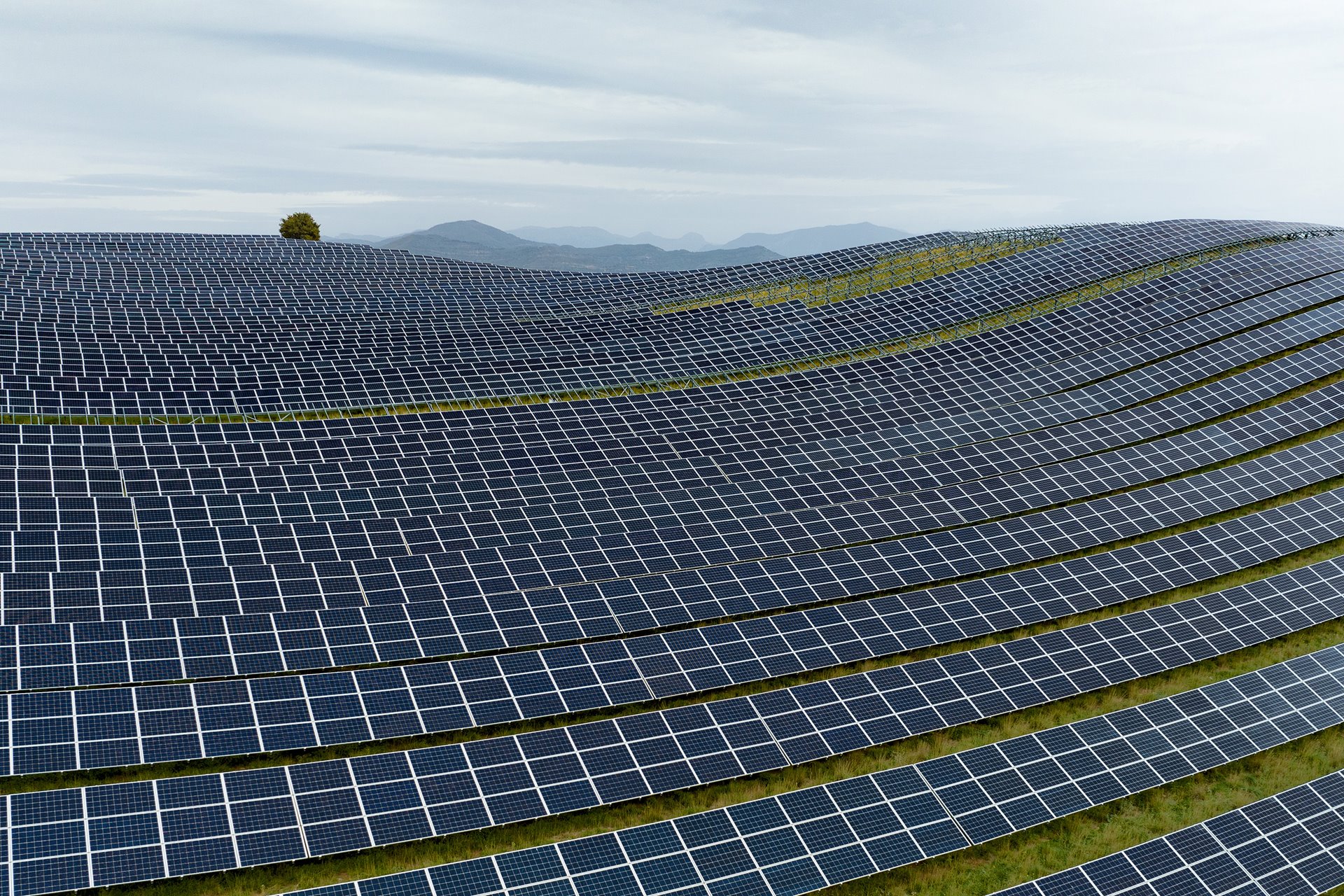This solar park in Provence-Alpes-Côte d'Azur, France, is capable of generating 35,000 megawatt-hours of electricity, supplying enough clean energy to power around 12,000 households, potentially offsetting up to 40,000 tons of CO2 emissions a year. Local citizens and environmental groups objected to the clearance of some 63 hectares of pine and oak forest to make room for the solar panels.
This project documents different technologies that offer possible routes of transition to a net-zero economy. The photographer visited innovative facilities across Europe, from Iceland to Italy, from 2020 to 2022.
Human-induced climate change is the largest, most pervasive threat to the natural environment and society that the world has ever experienced, according to the UN Human Rights Office, OHCHR. This prompted the European Union to establish targets to cut greenhouse emissions by at least 55 percent by 2030 and to reduce them to net-zero by 2050. European companies seeking ways to achieve these goals are exploring renewable energies, new technologies for food production, and the circular economy as potential ways forward.

